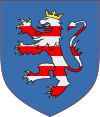Benedikt of the Elbe (Merveilles des Morte)
| Benedikt of the Elbe | |
|---|---|
 Portrait by Jan Brueghel, 1533 | |
| Lord of Elmshorn | |
| Reign | 1547-1577 |
| Coronation | 19 December 1510 |
| Predecessor | Title Created |
| Successor | Stefan I |
| Born |
12 October 1492 Halle, Thuringia, Holy Roman Empire |
| Died |
19 February 1577 Hamburg, Hanseatic League, Holy Roman Empire |
| Issue | Stefan I |
| House | House of Jenagotha |
| Father | Thin White Duke |
| Mother | Maria of Brandenburg |
| Religion |
Jungism (1507-) |
Benedikt von Jenagotha (12 October 1492 - 19 February 1577), known by his nickname and honorific the Lord of the Elbe, was a Thuringian-Hanseatic nobleman, naval commander, and statesman. Born in Thuringia to the Thin White Duke and his eleventh wife Maria of Brandenburg-Bohemia, an illegitimate daughter of Henry VIII, Holy Roman Emperor and one of his wives taken after the Lenzburg-Premyslid War, Benedikt was raised in Erfurt and received a noble education. With his prospects of gaining any land or titles by inheritance being low, Benedikt pursued a career in the military, and in particular was most interested in seafaring.
During the Protestant Reformation he adopted the Jungist faith like the majority of his dynasty, and served briefly as a squire for a minor lord at the end of the Wolfen War. As a young man, after the discover of the New World and the subsequent beginning of colonization, Benedikt traveled to the Hanseatic League and became a sailor. He would eventually rise to the rank of captain, and would spend the next decade extensively traveling the world. He eventually settled near Hamburg, remaining a prominent member of the community.
During the Kerpen War, in which Catholic zealots attacked Hanseatic territories in northern Germany, the Rätian Union send armed forces to support the Hansa. Benedikt would be selected to lead Rätian-Hanseatic forces along the river Elbe during the war, and he served to much acclaim. During the Battle of Bremen he proved a crucial contribution, earning him a great deal of fame after the war. For his actions during the war he would be bestowed the honorary title of "Lord of the Elbe", as well as Lord of Elmshorn, a small fiefdom north of Hamburg, which he would rule until his death in 1577. Benedikt's dynasty would continue to be minor lords in the Hansa, and would also contribute numerous admirals and leaders in later decades.

